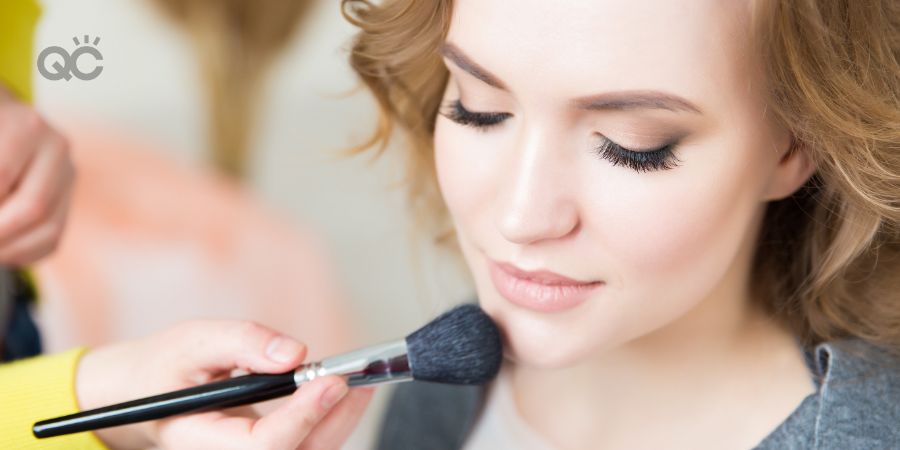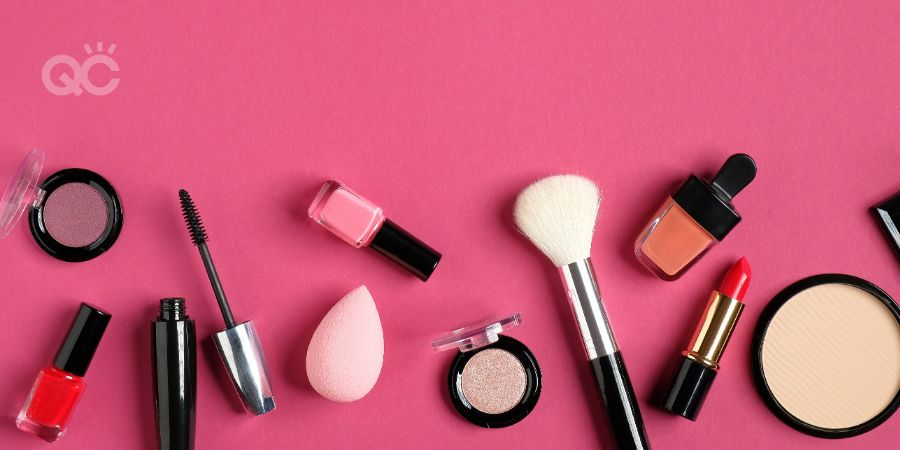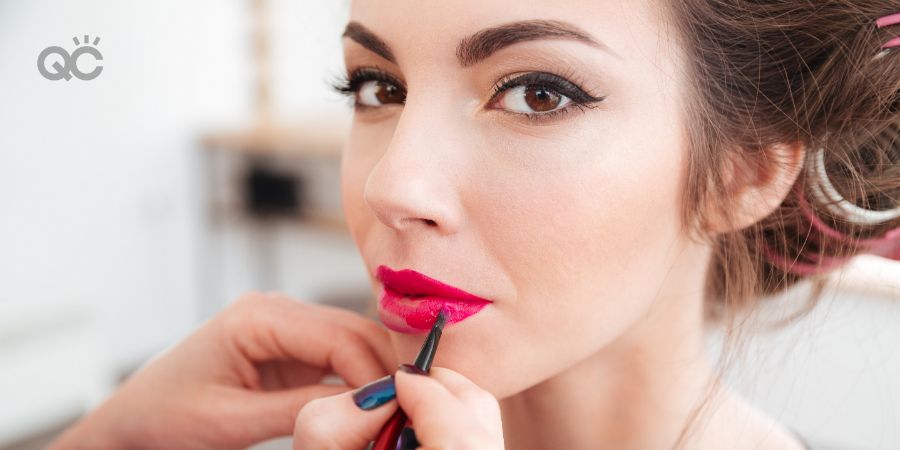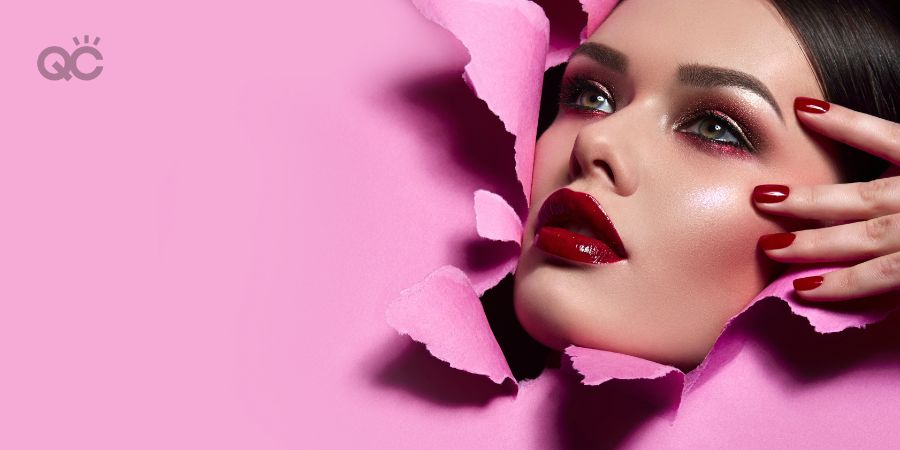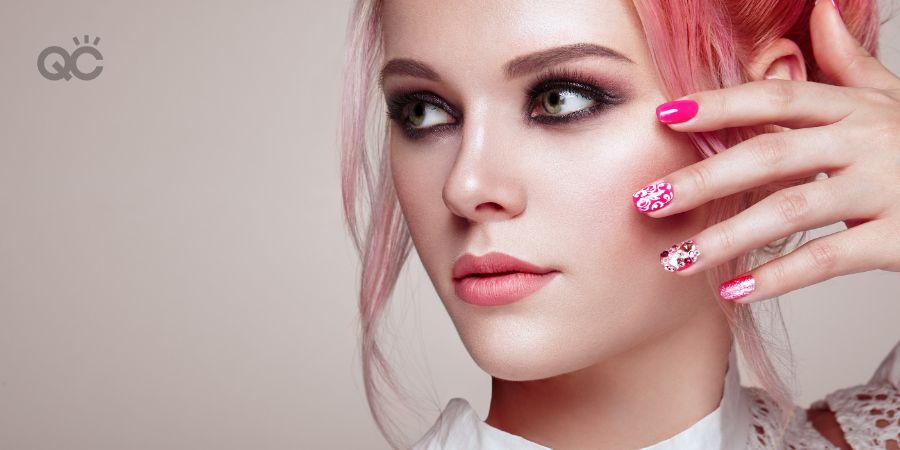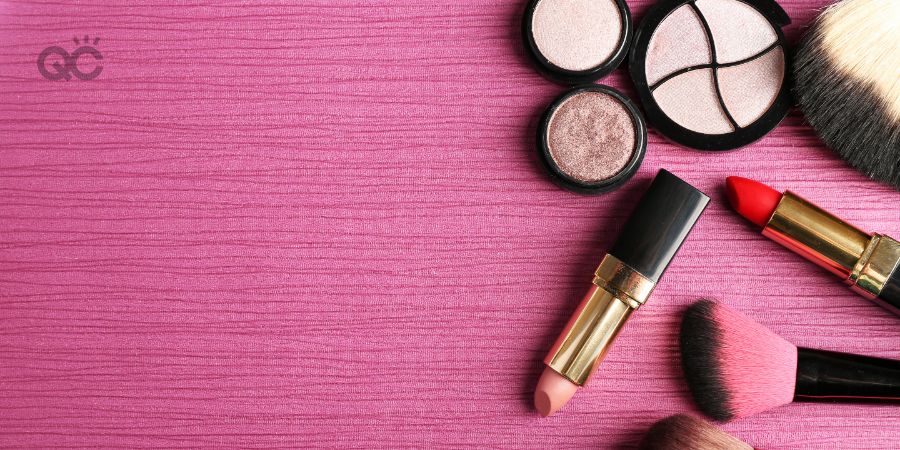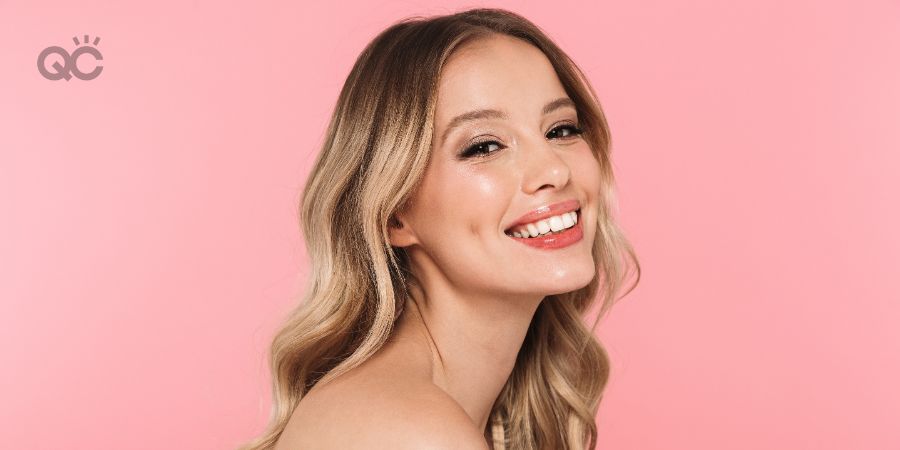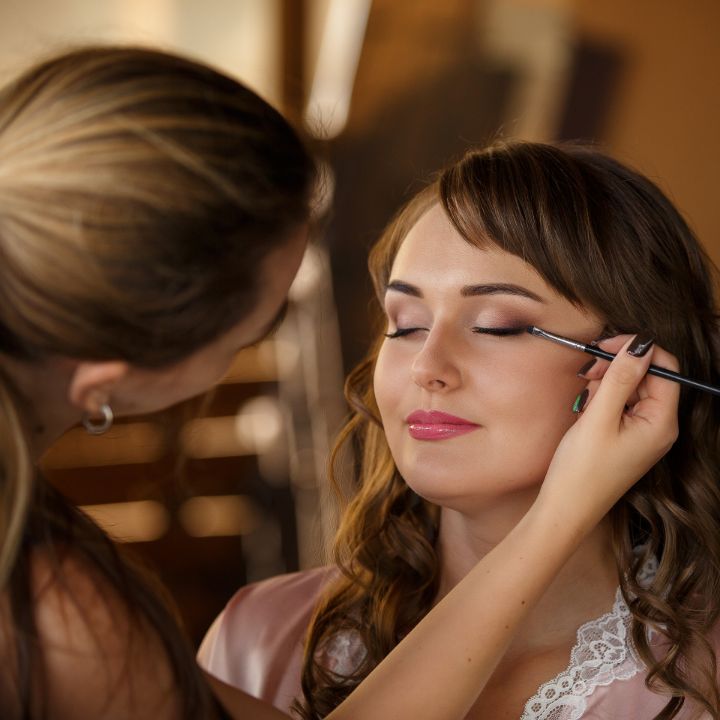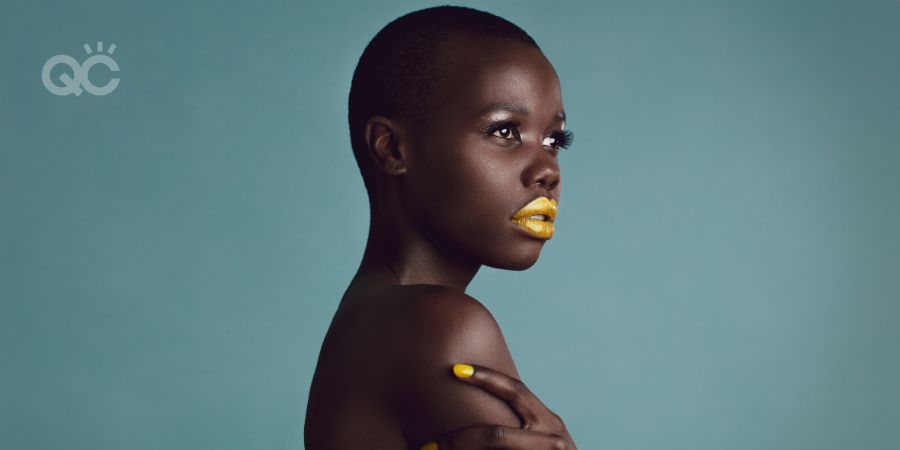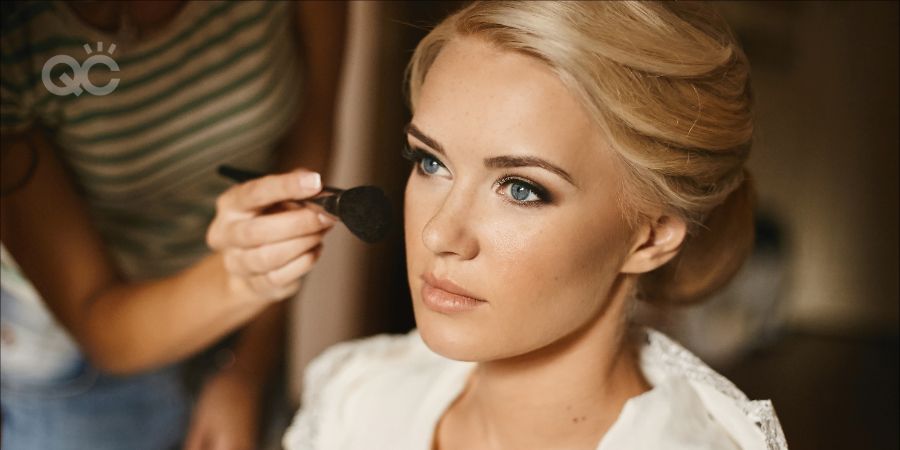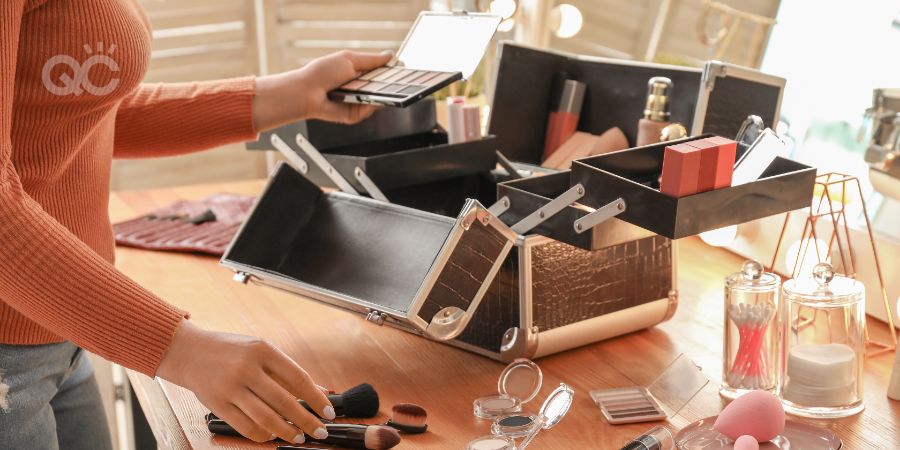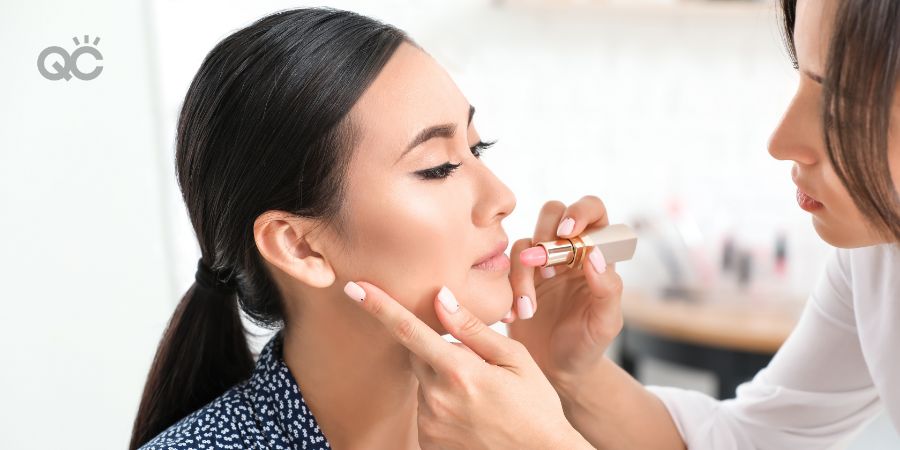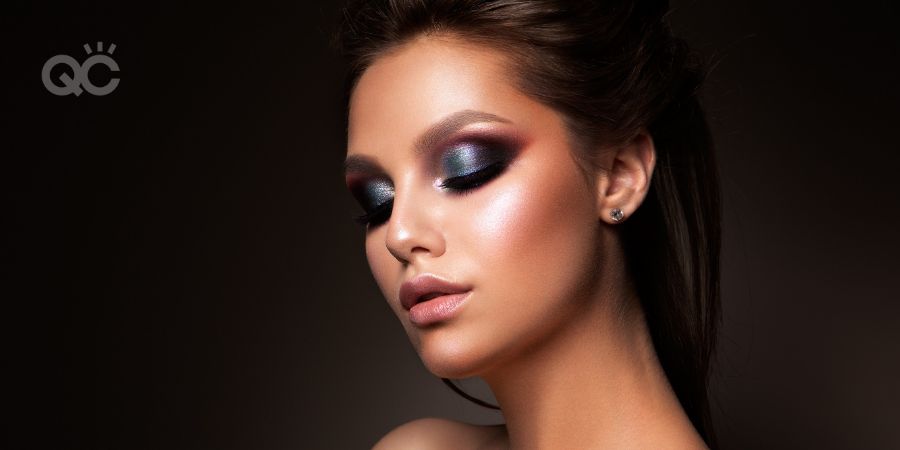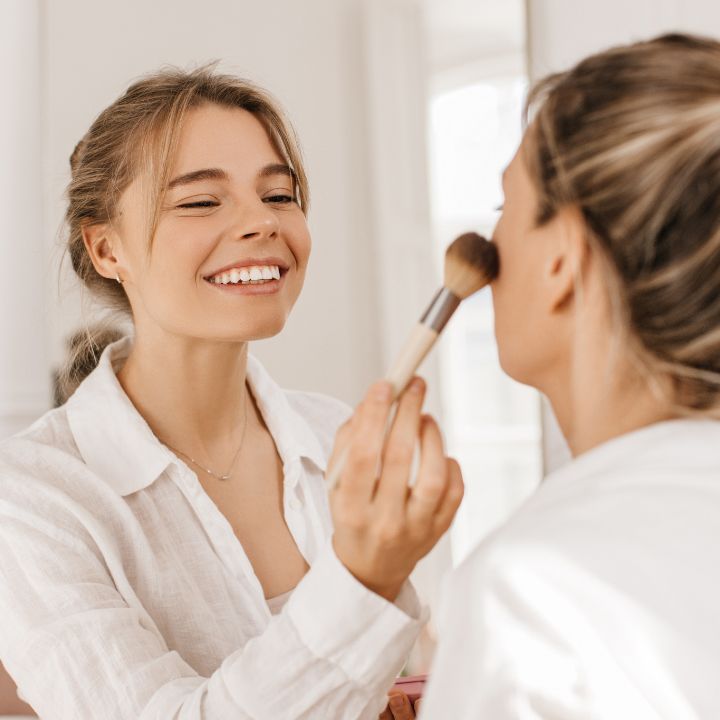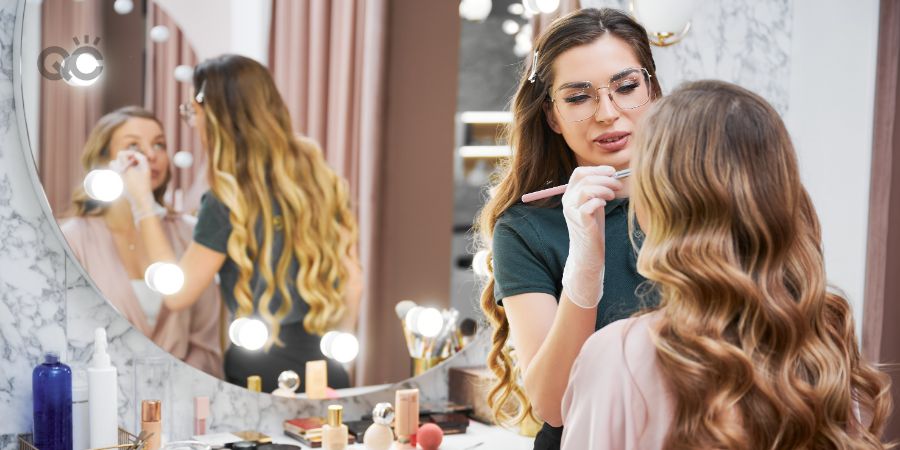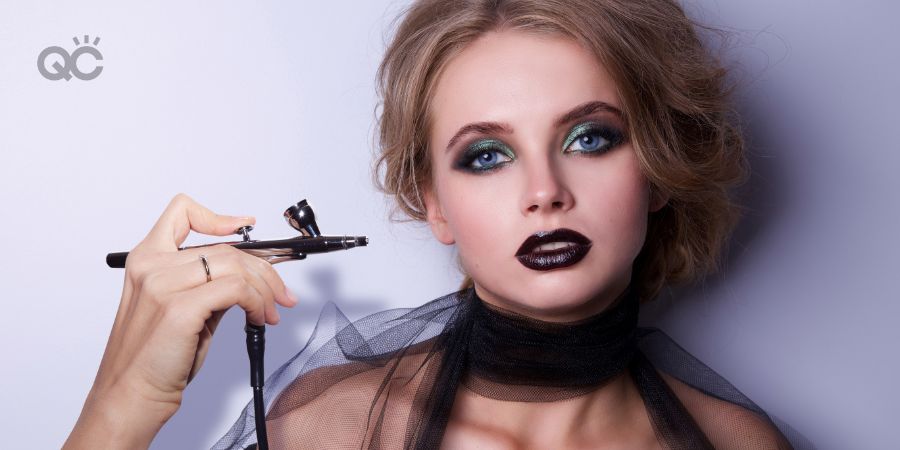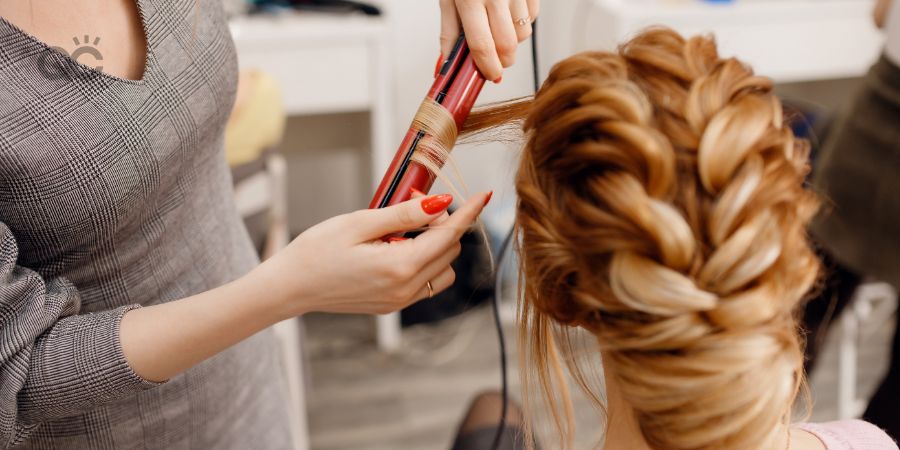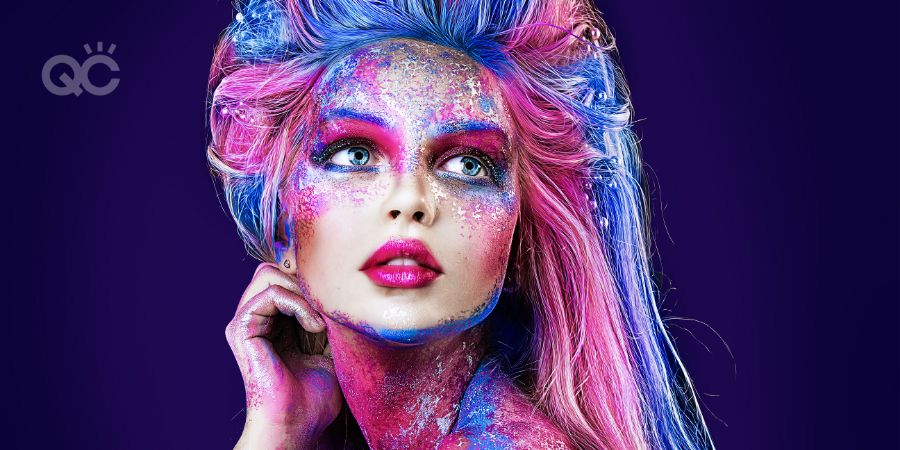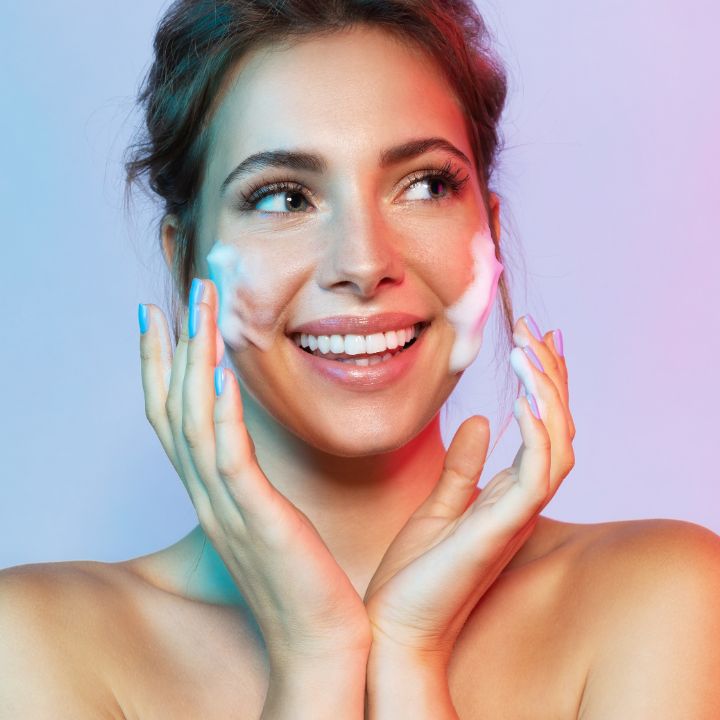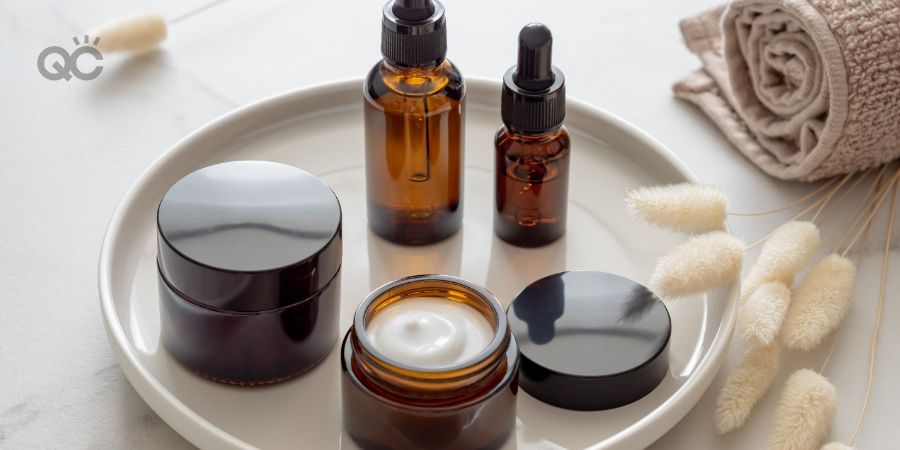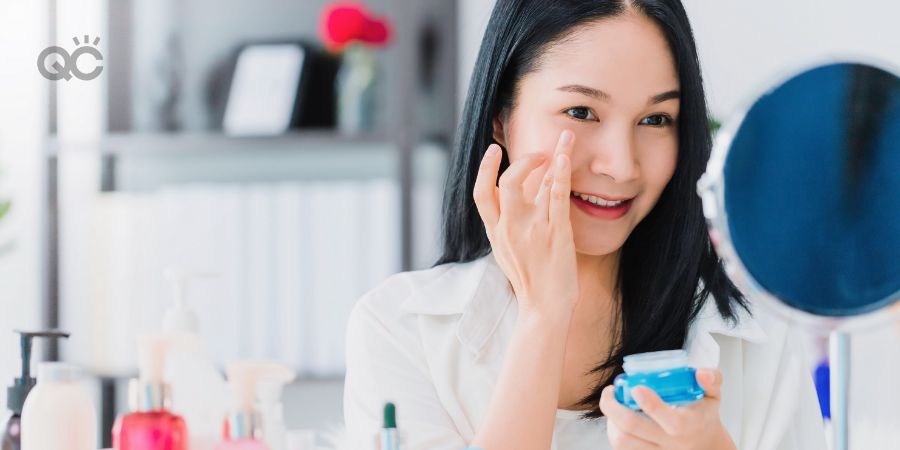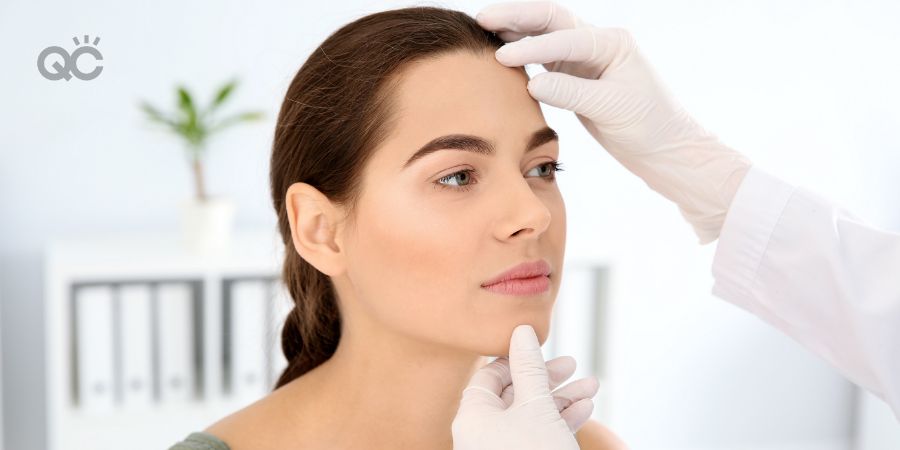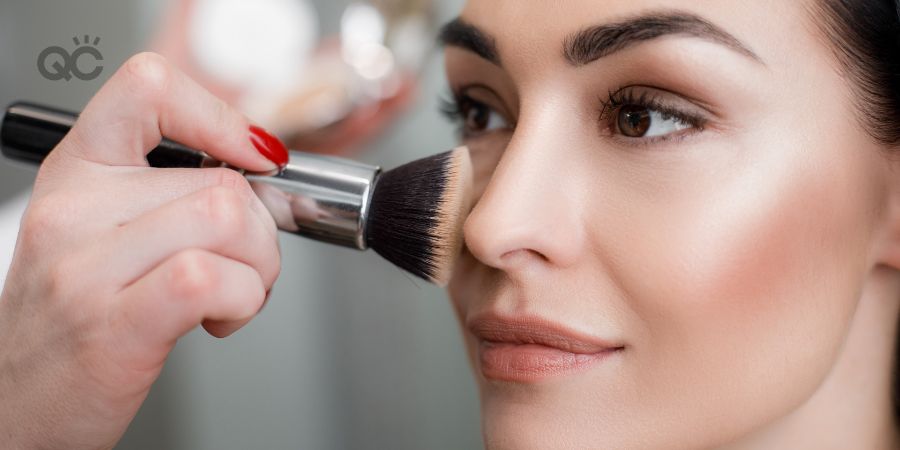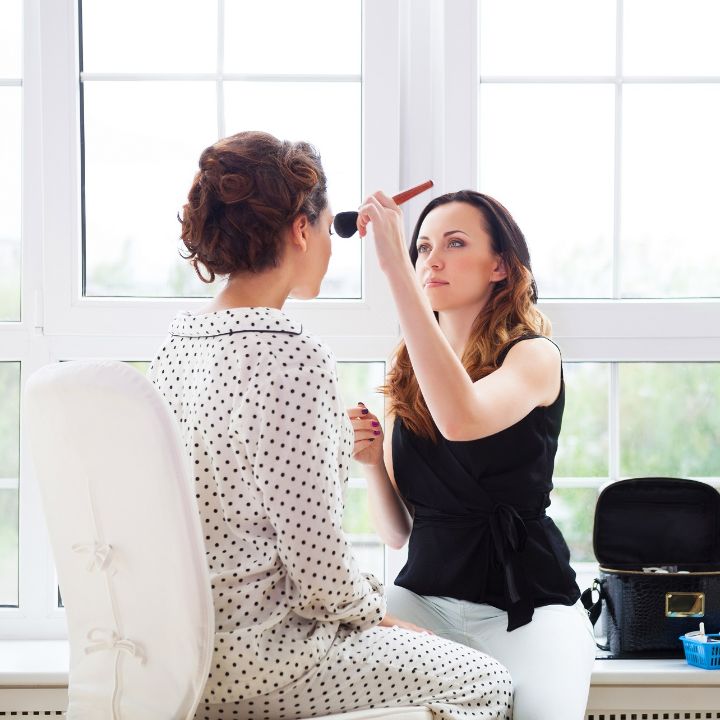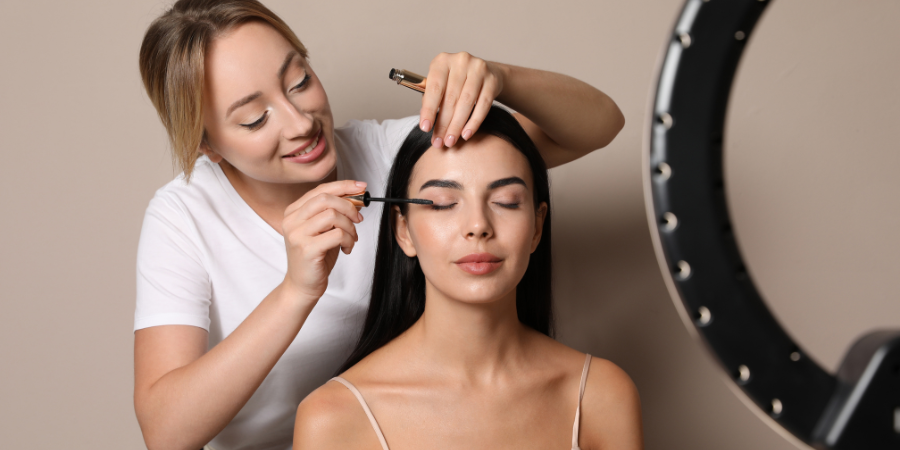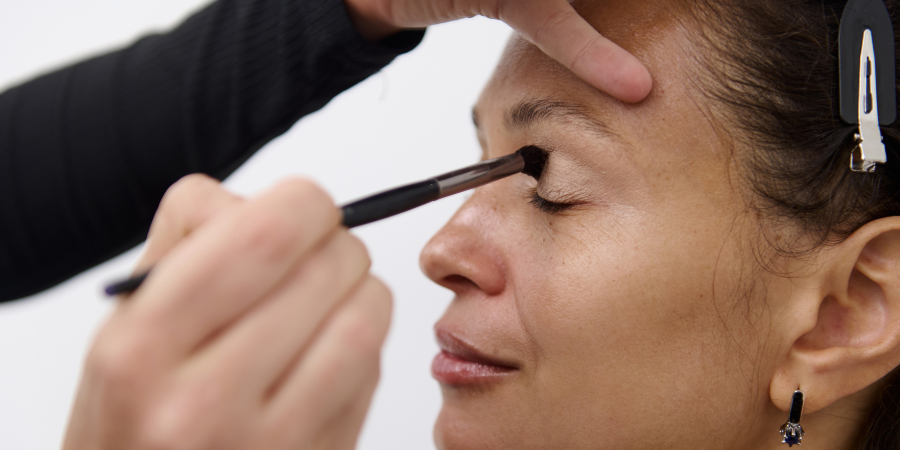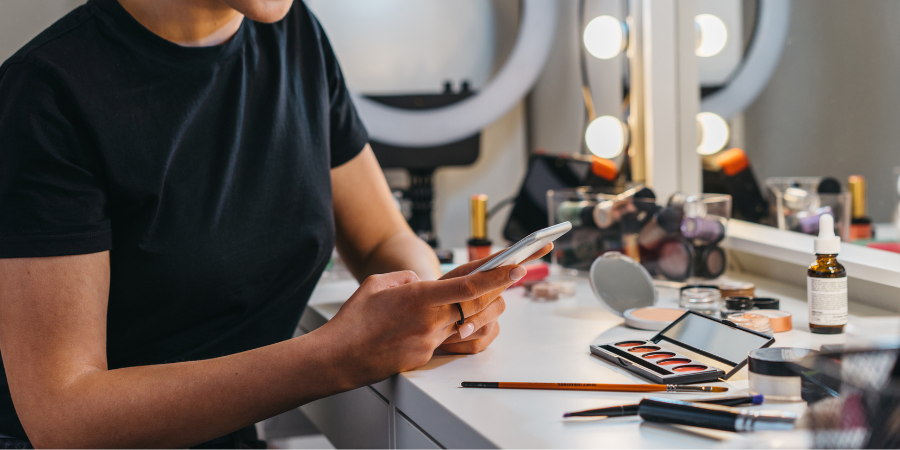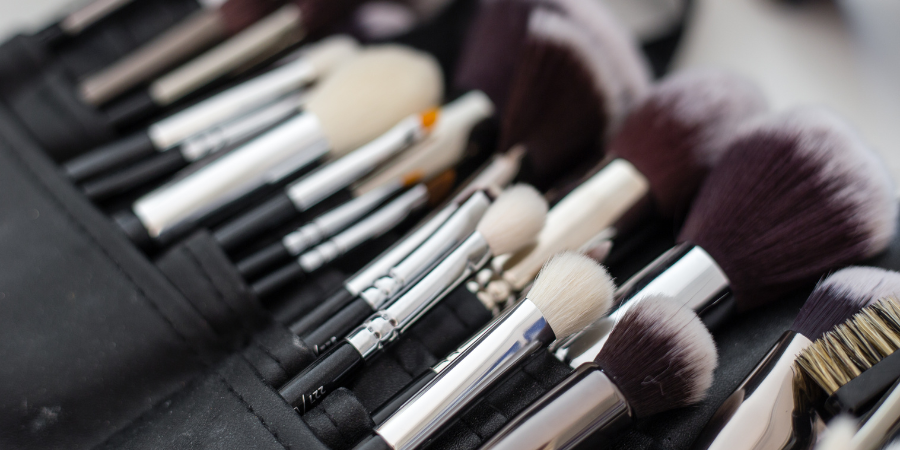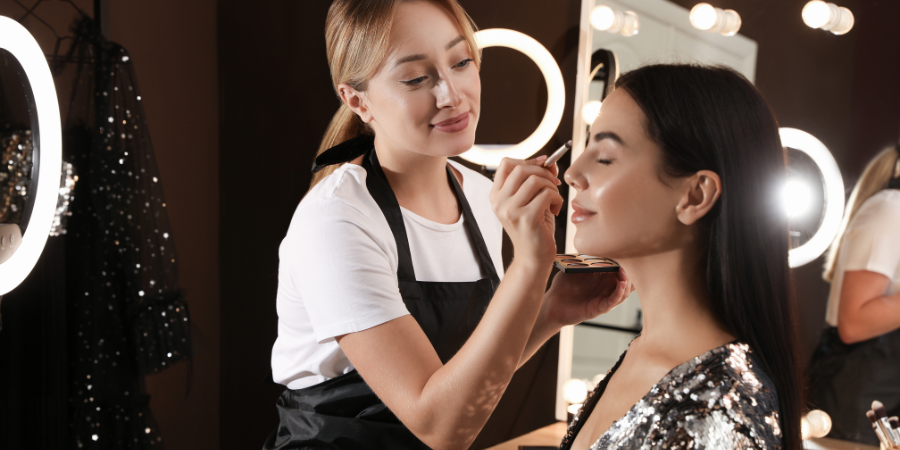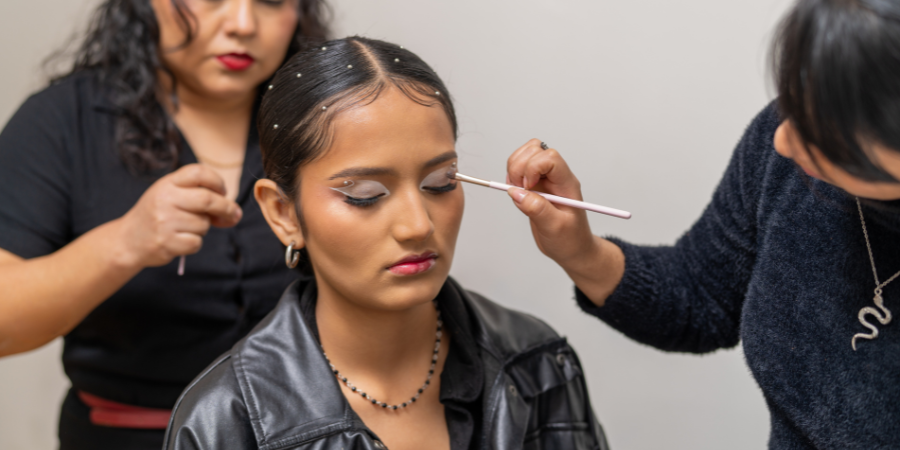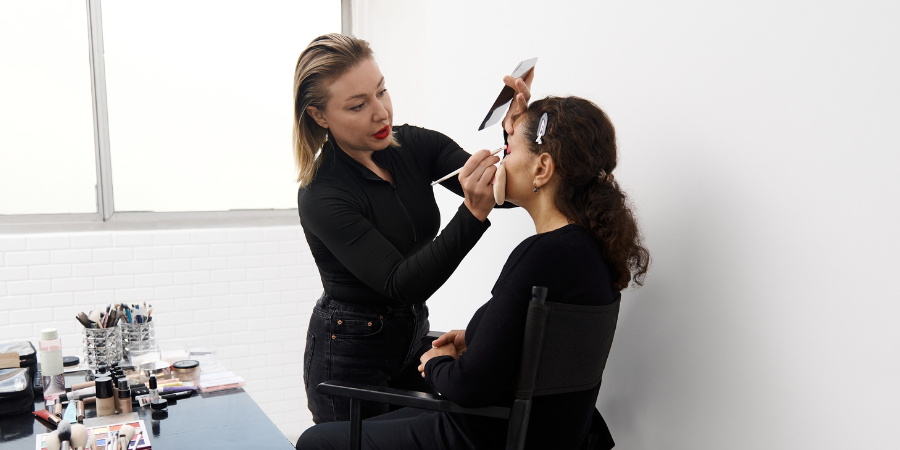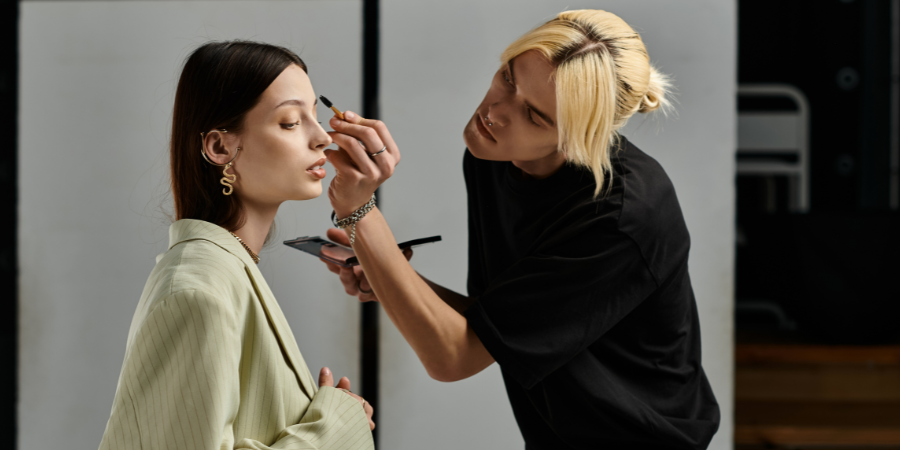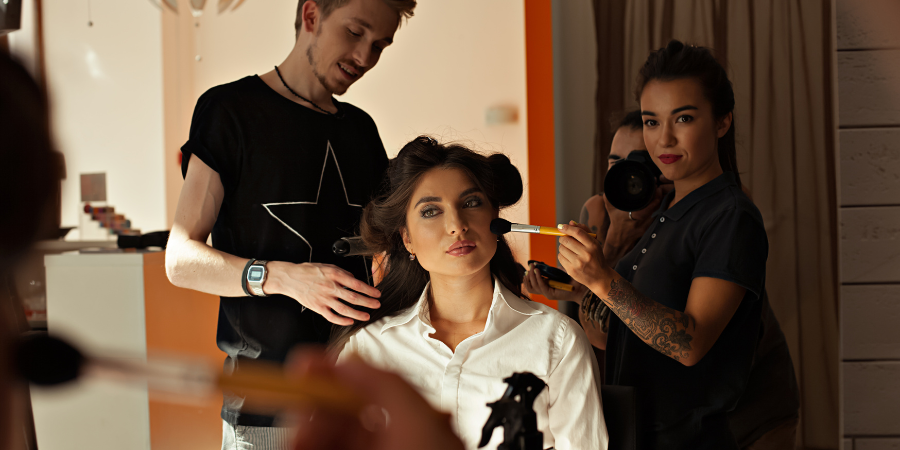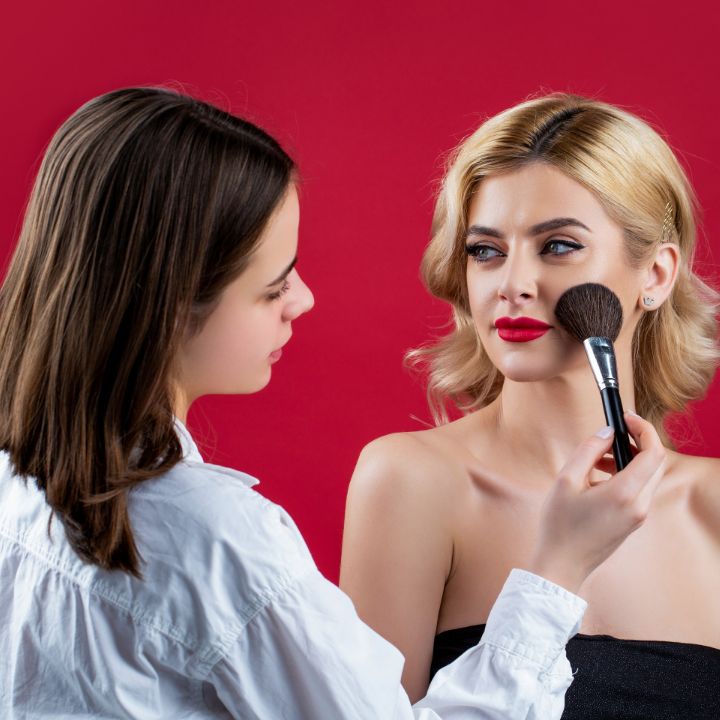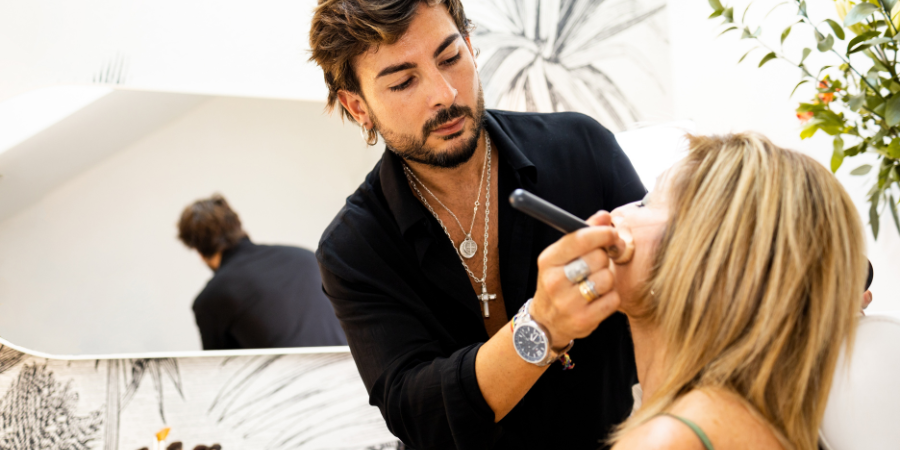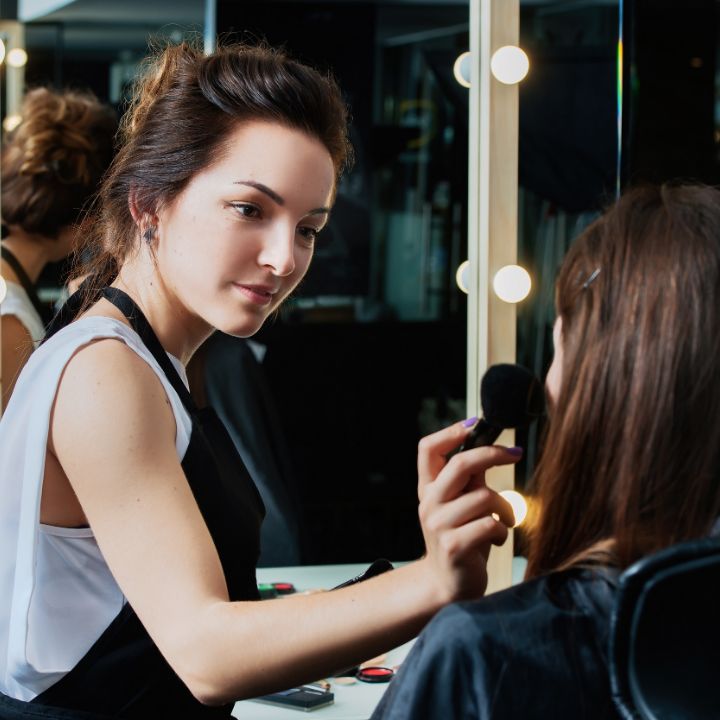
As a makeup artist, you know that your business is only as good as your last booking. So, how can you make sure that you are always booked solid and bringing in more revenue? In this article, we will discuss how to boost revenue for your makeup business.
In particular, we’ll cover the various ways that you can increase sales and bookings. From online marketing to client management, discover how you can start bringing in more money today!
Dream of becoming a makeup artist? This How-To Guide will cover everything you need to know!
How Do Makeup Artists Get Noticed?
The first step in getting booked solid is to make sure that people know about your makeup artist business. How do you do that? By marketing yourself online and offline!
There are many ways to market your makeup artist business. You can start by creating a strong social media presence. Make sure to post high-quality photos of your work, as well as helpful tips and tutorials. Additionally, you can also create a website or blog to showcase your work.
On top of digital marketing, don’t forget about old-fashioned offline marketing methods like passing out business cards and Flyers. Attend local events and meetups related to the beauty industry. And, most importantly, always be friendly and professional when meeting potential clients!
How Do Makeup Artists Expand?
If you’re looking to take your makeup artist business to the next level, then it’s time to start expanding. One way to do that is by offering new services. For example, if you currently only offer makeup application, why not add on complementary services like hair styling and/or skincare consulting?
Another way to expand your business is by increasing your prices. Of course, you don’t want to price yourself too high. Otherwise, you could alienate potential customers. However, if you feel confident in your abilities and have built up a strong client base, then raising your prices in a realistic manner is a great way to boost revenue.
Finally, another way to expand your business is by adding more team members. This could include hiring additional makeup artists or bringing on support staff like receptionists or assistants. By expanding your team, you’ll be able to take on more bookings and generate more revenue.
Did you know that in addition to makeup certification courses, QC Makeup Academy also teaches skincare consulting, hair styling, and more? Check out our full list of self-paced, online programs here!
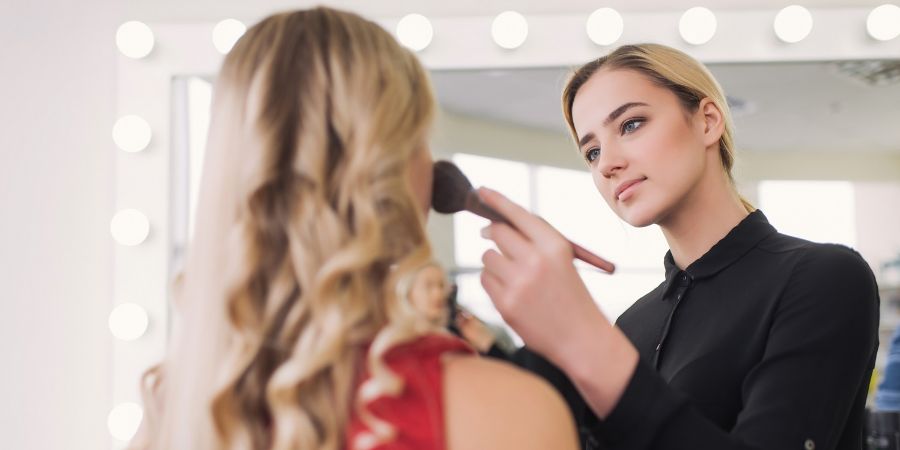
How Do I Get More Makeup Clients?
Now let’s talk about client management. How can you get more clients and keep them coming back?
Client Management 101
The first step is to make sure that you have a solid client management system in place. This could include using appointment scheduling software, keeping track of client contact information, and sending out reminders for upcoming appointments.
(For our recommended list of software tools, give this blog article a read!)
By having a strong client management system, you’ll be able to stay organized and efficient. This will allow you to take on more clients without feeling overwhelmed. Additionally, your clients will appreciate the professionalism and they’ll be more likely to book future appointments with you.
It’s also important to build strong relationships with your clients. After all, they’re the ones who are helping to support your business! Therefore, be friendly and personable when meeting with them. Get to know them on a personal level so that you can provide them with the best possible service.
Finally, always go above and beyond for your clients. Whether it’s providing them with a complimentary makeup touch-up or giving them a discount on their next appointment, find ways to show your appreciation. By doing this, you’ll ensure that they have a positive experience with your business.
In turn, they’ll be more likely to recommend you to their friends!
How Can I Promote Myself as a Makeup Artist?: Where To Find Makeup Clients
So, now that we’ve gone over some tips for client management, where can you actually find new clients?
There are a few different ways to go about this…
First of all, as we mentioned earlier, you can attend local events and meetups related to the beauty industry. This is a great way to network with potential customers, as well as collaborators.
Speaking of collaborations, this is another excellent option at your disposal! Get your name out there by working with other businesses and/or professionals in the industry. For example, you could partner with a local salon or spa. They could promote your services to their clients and vice versa.
Another way you can collaborate is by working with other industry experts on a stylized photoshoot. Not only will this give you real-world experience and allow you to network… You’ll also get high-quality images that you can use in your portfolio, too!
Finally, you can also use online directories to find new clients. Make sure to list your business on popular platforms like Google My Business and Yelp. You can also create profiles on freelancer websites like Upwork and Fiverr.
Remember, these are just some of the ways you can generate more leads and book more appointments. There are many more opportunities out there for you, which we will touch on shortly. At the end of the day, though, the key is to be proactive and to put yourself out there!
How To Boost Revenue For Your Makeup Business: Marketing Suggestions
Alright, now let’s discuss how – and where – you should be marketing your makeup business.
1. Social Media Marketing
In today’s world, it’s more important than ever to have an active presence on social media. Why? Because that’s where your potential clients are hanging out!
Some of the benefits of social media marketing include:
- It’s relatively affordable (or even free!)
- You can reach a large audience with minimal effort
- It’s a great way to build relationships with your clients
- You can get instant feedback from your target market
So, make sure to create profiles on all of the major social media platforms, such as Facebook, Instagram, TikTok, Twitter, Pinterest, LinkedIn, and YouTube. If you’re not sure where to start, here are some tips to keep in mind:
- Use original, high-quality images and videos
- Post regularly (but don’t spam your followers!)
- Engage with other users (like, comment, and share their content)
- Run paid social media ads
- Link your business website in all of your social media bios
- Use your social media accounts to network with other beauty experts you admire

How Do Makeup Artists Get More Followers?
Here are some tips to quickly grow your social media following:
#1 Host a giveaway or contest
One of the best ways to get more eyes on your social media accounts is to host a giveaway or contest. This will not only increase your following but also help you to engage with your target market.
When hosting a giveaway, make sure to set some guidelines. For example, you could require participants to follow your account and share your posts in order to enter. Additionally, you could also ask them to tag their friends in the comments section.
Not only will this help you to get more followers, but it will also increase brand awareness and reach.
Not sure where to start? This article by Memberquest breaks down the process in 5 easy steps!
#2 Collaborate with other industry experts
As we mentioned earlier, collaborating with other businesses and professionals in the industry is a great way to get your name out there. The same applies to the world of social media!
When partnering with someone for a collaboration, make sure to promote it across all of your social media channels. Additionally, you could also try to cross-promote with the other person or business involved. For example, you could share their content on your channels and vice versa.
This is a great way to reach new audiences and grow your social media following organically.
#3 Use relevant, popular hashtags
Hashtags are a great way to get your content seen by more people, as they allow you to be discoverable on social media platforms. When using hashtags, make sure to use ones that are relevant to your industry and niche. Additionally, try to use popular and trending hashtags whenever possible.
Here are some examples of relevant hashtags for makeup artists:
- #mua
- #makeupartist
- #makeupaddict
- #makeuplover
- #wakeupandmakeup
- #bblogger
- #beautyblogger
Check out more trending beauty hashtags here.
Basically, by using relevant and popular hashtags, you can reach new audiences and grow your social media following in no time!
#4 Post high-quality images and videos
When it comes to social media, content is king. That’s why it’s important to post high-quality images and videos that will capture the attention of your target market.
If you’re not sure where to start, here are some tips:
- Use bright, vibrant colors in your images
- Include before-and-after shots
- Showcase your work with before-and-after photos or videos
- Use close-ups and detail shots
- Edit your images and videos professionally
By following these tips, you can be sure that your content will stand out from the rest!
#5 Engage with other users regularly
Lastly, as previously mentioned, it’s important to engage with other users on social media. This includes liking, commenting, and sharing their content. Additionally, you could also try to tag them in your posts or stories.
When engaging with others, make sure to be genuine and authentic. Additionally, try to add value to the conversation by leaving thoughtful comments. By doing so, you’ll not only build relationships but also grow your social media following organically.
By following these 5 key tips, you should see a significant increase in your social media reach and engagement in no time! And, of course, the more followers you have, the more people you’ll be able to market your business to.
How Can I Promote My Makeup on Instagram?
Now, let’s say that you want to focus a lot of your social media marketing efforts to Instagram. After all, it is one of the most popular platforms out there with over a billion monthly active users!
In addition to the tips we’ve already covered, here’s some bonus advice on how to promote your makeup business on Instagram specifically:
#1 Make use of Instagram Stories
With over 500 million daily active users, Instagram Stories is a great way to reach new audiences and promote your business. When using Stories, make sure to use relevant hashtags, post high-quality images and videos, and tag other users whenever possible.
Additionally, you could also try using Instagram Story Highlights. This feature allows you to save your Stories and display them on your profile permanently. This is a great way to showcase your work, highlight your services, and promote any special offers or discounts that you may be running.
To learn more about using Instagram Stories for business, check out this helpful guide by Hootsuite!
#2 Use hashtags strategically
As we’ve mentioned before, hashtags are a great way to get your content seen by more people. When using them on Instagram, make sure to use a mix of popular, relevant, and niche-specific hashtags. Additionally, try to use a variety of different hashtag types, such as branded hashtags, campaign hashtags, and location-based hashtags.
For more tips on using hashtags effectively, be sure to read this article.
#3 Run an Instagram marketing campaign
Another great way to promote your makeup business on Instagram is by running a marketing campaign. When running a campaign, you can use a variety of different strategies, such as influencer marketing, user-generated content (UGC), and giveaways.
To learn more about running an effective Instagram marketing campaign, check out this helpful guide by Wordstream.
PRO TIP: It’s worth it to note that, in general, paid marketing campaigns are worth running elsewhere, too. For instance, it could be a worthwhile investment to create marketing campaigns on Facebook, Google, and TikTok – just as a few examples.
#4 Partner with micro-influencers
Micro-influencers are social media users with a relatively small but engaged following. When working with micro-influencers, you can expect to see high levels of engagement and reach. Additionally, partnering with micro-influencers is often more affordable than working with larger influencers.
Now, you might be wondering, “Why micro-influencers and not macro-influencers?” Well, micro-influencers typically have a more engaged following than macro-influencers (a.k.a. celebrities). Additionally, their smaller followings tend to be more tight-knit and responsive to the content that they share.
To learn more about partnering with micro-influencers, check out this useful article by Forbes!
#5 Use relevant, high-quality visuals
Finally, when promoting your makeup business on Instagram, make sure to use relevant and high-quality visuals. This means posting images and videos that are visually appealing and on-brand. Additionally, try to use a mix of both static and moving content to keep things interesting.
For more tips on creating high-quality visuals, be sure to read this blog post.
As you can see, there are plenty of strategies that you can use to promote your makeup business on this popular platform!
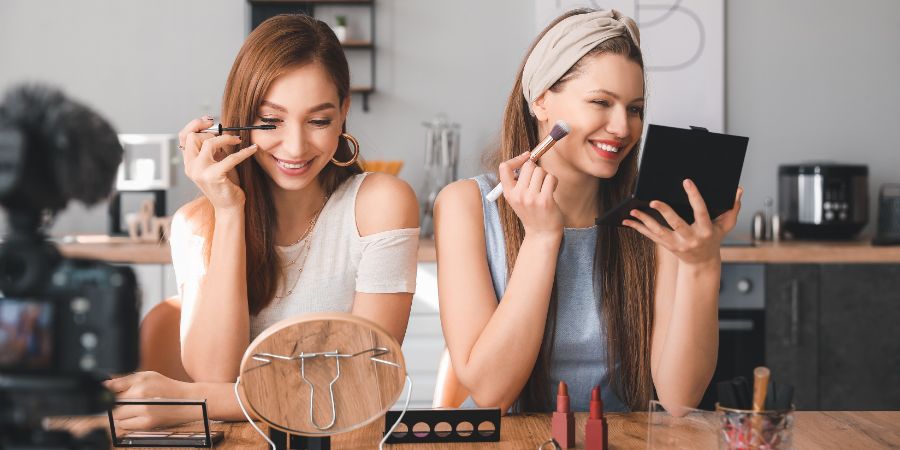
2. Email Marketing
Another great way to promote your makeup business is through email marketing. This involves sending out newsletters, special offers, and other marketing materials to your email list.
Email marketing can be an effective way to reach new customers and promote your business. However, it’s important to make sure that you’re sending high-quality content that is relevant to your audience. Additionally, you’ll want to avoid spamming people with too many emails.
To learn more about email marketing, check out this breakdown by Mailchimp!
PRO TIP: If you don’t have an email list yet, now is the time to start building one! You can do this by collecting emails at events, through sign-ups on your website or social media platforms, or even by offering a freebie in exchange for people’s contact information.
3. Build a Website For Your Makeup Business
Another great way to market your makeup business and boost revenue is by creating a website. This will give you a platform to showcase your work, as well as list your contact information and available services.
Creating a website is a great way to build your brand and attract new customers. It’s also relatively easy and affordable to do, especially if you use a platform like WordPress. In terms of boosting revenue, having a professional website is critical because it will help you appear more credible and trustworthy to potential clients.
Not to mention, if it offers an option for online booking (which we highly recommend), it can make it even easier for people to book your services!
If you’ve never put together a business website before, here are some tips to keep in mind:
- Use high-quality images that accurately represent your brand
- Keep your website design simple and easy to navigate
- Provide links to your social media profiles
- Include clear calls-to-action (e.g. “Book Now,” “Contact Us,” etc.)
- Make sure your contact information is up-to-date and easy to find
You can also check out this article by Business News Daily for 12 handy tips on creating a successful business website.
Why SEO Will Boost Revenue For Your Makeup Business
SEO (a.k.a. Search Engine Optimization) is one of the most important aspects of online marketing, yet it’s often misunderstood or overlooked by small businesses. Simply put, SEO is the process of optimizing your website and content to rank higher in search engine results pages (SERPs).
So, why does this matter? Furthermore, how will it positively impact your makeup business’s revenue?
The answer is simple: when people are looking for makeup artists in their area, they’re likely to use a search engine like Google. And if you can get your website to appear on the first page of results, you’ll be much more likely to get bookings and boost revenue for your makeup business!
There are a number of different factors that go into SEO, but some of the most important ones include:
- The quality of your website and content
- How well your website is optimized for search engines
- How many high-quality inbound links you have to your website
- Your social media presence
In a nutshell, SEO is important because it can help you get more visibility for your makeup business online. And the more visible you are, the easier it will be to attract new clients and boost revenue.
To learn more about how SEO works and how you can use it to promote your business, check out this informative Beginner’s Guide from Moz. This article by Reliable Soft Digital Marketing Agency also provides a list of 10 free SEO courses (with certificates) that you can complete in just a few short hours!
4. Invest in Business Cards
Business cards may seem like a small thing, but they can be a powerful marketing tool for your makeup business. They’re an easy and affordable way to promote your brand and make it easier for people to remember your contact information.
Plus, if you get creative with your business card design, you can use them as mini-portfolios! This is a great way to showcase your work and convince potential clients to book your services.
To find out more about how to create an effective business card design, check out this helpful guide from 99designs. You can also search for “business card printing” on Google or another search engine to find reliable printing services in your area.
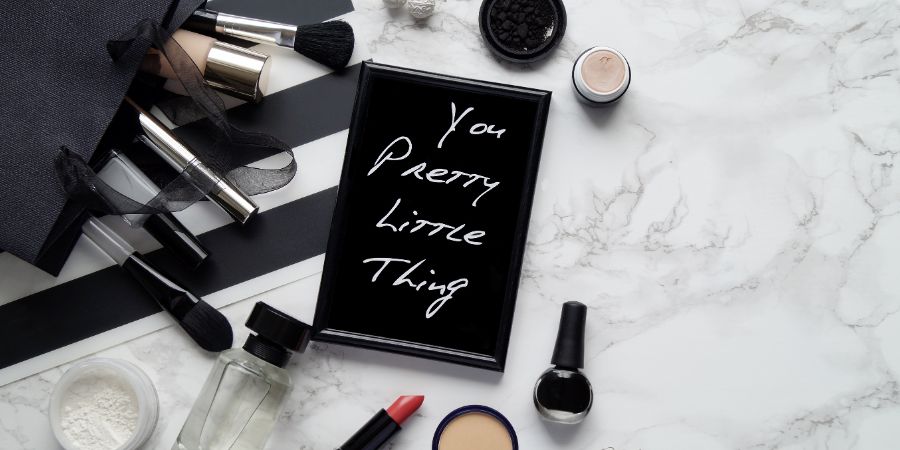
How To Boost Makeup Revenue Through Service Pricing and Client Incentives
Setting Your Makeup Business Rates
If you want to boost revenue for your makeup business, it’s important to be strategic about pricing your services. Many makeup artists make the mistake of undercharging for their services, which can leave them feeling overworked and underpaid.
On the other hand, if you charge too much, you may price yourself out of the market or deter potential clients from booking your services.
To find a happy medium, start by considering your target market. How much are they willing to pay for makeup services? How much do your competitors charge? Use this information to come up with a pricing strategy that will attract clients without breaking the bank.
If you’re new to the professional beauty industry and aren’t sure how to confidently set your rates for the first time, keep the following in mind:
- Your experience: How long have you been working as a makeup artist? Are you just starting out or do you have years of experience under your belt?
- The type of services you offer: What kinds of makeup services do you provide? Are they simple or complex? How long do they take to complete?
- The cost of your supplies: How much do you spend on makeup and other supplies? Make sure to factor in the cost of your time as well!
- Your overhead costs: How much does it cost to maintain your business? This includes things like rent, utilities, insurance, etc.
Once you have a good understanding of your costs and the going rates in your area, you can start to set your own rates with confidence. If you’re still not sure where to start, consider using a pricing calculator like this one from Calculator Academy.
Fun Fact: QC Makeup Academy‘s online certification courses all come with an ENTIRE unit devoted to business training. And as part of this training, you’ll learn how to price your makeup services properly!
Discounts and Client Incentives
In addition to setting competitive rates, you can also offer discounts and incentives to attract new clients and boost revenue. For example, you could offer a discount for first-time clients or run a promotion for couples getting married. Just be sure not to devalue your services in the process!
Here are some more popular examples of effective incentives to offer:
- Bulk discounts: Offer a discount when clients book multiple services at once.
- Referral programs: Give clients a discount or free service for referring their friends.
- Loyalty programs: Provide loyalty rewards, such as a free service after every ten appointments.
Remember: people love a good deal! If you can offer them something of value, they’ll be more likely to book your services – and come back for more in the future.
Increase Makeup Sales By Selling Cosmetic Products
In addition to selling your makeup services, you can also boost revenue by selling products. This could include anything from makeup brushes and eyeshadow palettes to skincare products and foundations.
The key is to find a balance between offering enough products to generate sales – but not so many that it becomes overwhelming for your clients. Start by surveying your target market to see what kinds of products they’re interested in. Then, create a product lineup that meets their needs and budget.
To learn more about how to sell makeup products, check out this helpful guide from Website Builder Expert.
Starting Your Own Makeup Line
Another great way to boost revenue for your makeup business is to start your own makeup line. This could include anything from lipstick and mascara to false eyelashes and foundations.
Not only will this give you a new stream of revenue; it’ll also help you build brand awareness and establish yourself as an expert in the industry.
If you’re interested in starting your own makeup line, there are a few things you’ll need to do first:
- Research the market: What kinds of products are in demand? How much are people willing to pay?
- Know which ingredients to use (and which to avoid): Not all ingredients are created equal. Some are better for the skin than others.
- Create a business plan: This will help you map out your goals, budget, and marketing strategy.
- Find a manufacturer: You’ll need to find a reputable cosmetics manufacturer who can produce high-quality products at a reasonable price.
- Create packaging: Your packaging should be eye-catching and reflective of your brand.
- Market your products: Once you have everything in place, you’ll need to start marketing your products to reach your target audience.
For more information on starting your own makeup line (and sell it online), check out this awesome guide from Shopify.
Just keep in mind that launching your own cosmetics line will require some sort of investment. So, be sure to do your research and create a solid business plan before you get started. That said, once your line is up and running, it has the potential to be a very profitable venture!
Becoming a Brand Ambassador
Another great way to boost revenue for your makeup business is to become a brand ambassador. This involves partnering with a cosmetic company and representing their products.
As a brand ambassador, you’ll typically receive free products (which you can use in your own work), as well as discounts and commission on sales. Plus, it’s a great way to build relationships with other industry professionals!
To learn more about becoming a brand ambassador, Keep Calm and Chiffon has a great article that breaks down everything you need to know to get started!
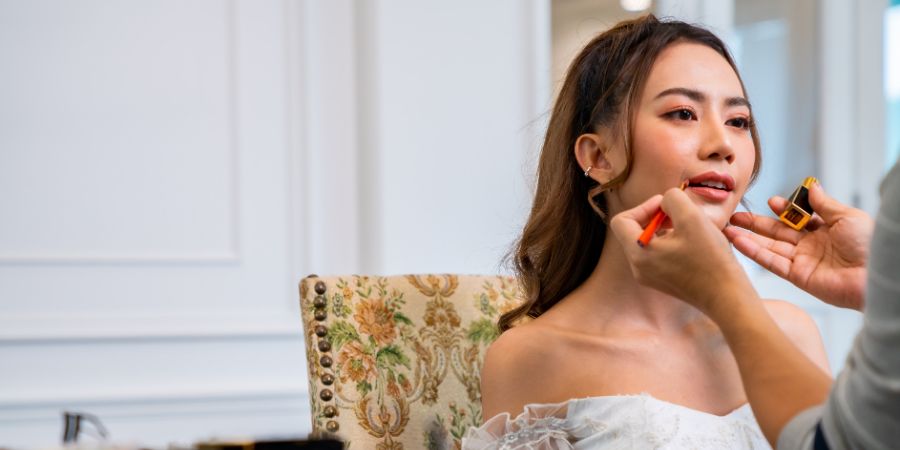
Boost Revenue For Your Makeup Business By Getting Professionally Certified
If you’re not already certified, getting your professional makeup certification is one of the smartest ways to boost revenue for your makeup business. Firstly, this will give you the skills and knowledge you need to be a successful makeup artist in the first place. And secondly, it’ll also make you a LOT more attractive to potential clients.
Plus, being certified will help you stand out from the competition – which is always a good thing!
There are plenty of ways to get certified, but one of the most popular (and affordable) options is online courses. QC Makeup Academy, for example, offers an excellent Master Makeup Artistry Course that covers everything from basic techniques to advanced concepts.
Once you’ve completed this course, you’ll be mailed a physical copy of your globally-recognized Master International Makeup Professional (MIMP) certification. Plus, this title acts as your official designation, too! You can then use this to market yourself as a certified makeup artist – which will help you attract higher-paying clients.
So, if you’re serious about boosting revenue for your makeup business, getting certified is definitely the way to go!
View the full course page for QC’s Master Makeup Artistry certification program here – and discover how you can become a certified MUA in as little as 8 short weeks!
5 Extra Ways To Boost Revenue For Your Makeup Business
On top of everything we’ve already covered in this article, here are a few more tips to help you boost revenue for your makeup business…
Get involved with bridal shows!
Bridal shows are a great way to meet potential clients and get your name out there. Plus, they typically attract a high-end clientele – which means you can charge a bit more for your services.
To learn more about bridal shows (and why you need to attend them), check out this wonderful article from Here Comes The Guide.
Offer group discounts!
If you’re looking to attract more clients, offering group discounts can be a great way to do it. This could involve anything from giving a discount for booking multiple services at once to offering a lower rate for larger groups. Just remember that you’ll need to adjust your pricing accordingly so that you’re still making a profit!
Offer virtual makeup artistry services!
With the rise of technology, more and more people are opting for virtual makeup services. This is a great way to reach a wider audience – and it can be done from the comfort of your own home!
By providing virtual services, you can:
- Expand your client reach on a global scale
- Teach one-on-one and/or group makeup classes
- Conduct contact-free client consultations
- Offer makeup advice and tips
- And so much more!
PRO TIP: Want to add virtual beauty services to your makeup business? Take QC Makeup Academy’s 1-unit Virtual Makeup Training mini course and learn everything you need to know in less than a month!
Get involved with charity work!
Charity work is a great way to give back – and it can also be a great marketing tool. By getting involved with local charities, you can not only help those in need but you can also attract attention to your business. Plus, it’s a great way to build relationships with other industry professionals!
There are plenty of ways to get involved with charity work, so there’s sure to be something that’s a perfect fit for your business.
Offer free (or discounted) makeup services to friend and family!
This one might seem a bit counterintuitive, but hear us out! Offering free or discounted makeup services to your friends and family can actually be a great way to attract new clients.
How so?
Well, first of all, it’s a great way to get real-world practice. Secondly, it’s a great way to build up your portfolio. As your friends and family see the amazing work you’re doing, they’re sure to spread the word – which can help you attract new clients and boost your revenue.
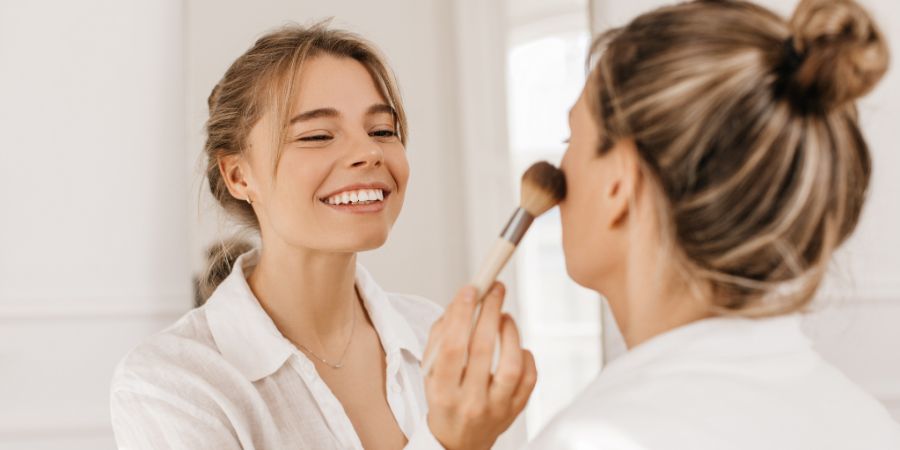
Conclusion
As you can see, there are plenty of ways to boost revenue for your makeup business! So, if you’re looking to increase sales and get more bookings, be sure to implement some (or all) of the strategies we’ve covered in this article. Trust us – you won’t regret it!
What other tips do you have for boosting revenue for your makeup business? Let us know in the comments below!
Thanks for reading! 💕




